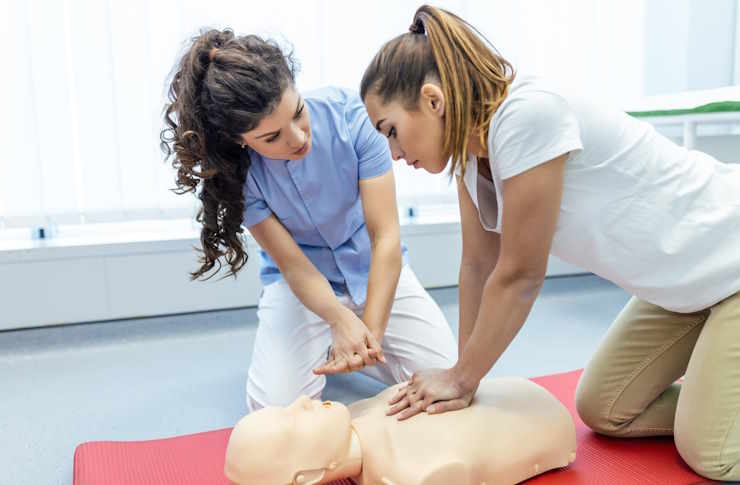How to Become a Medical Assistant in London: Start with Training
Medical assistant roles are becoming more accessible in London. Whether you live in a large city or a smaller area, you may not need prior experience to begin. Training programs are available to help newcomers enter the field confidently. With growing healthcare demand, this path offers hands-on work and long-term job potential.

What Does a Medical Assistant Do in Healthcare?
Medical assistants are versatile professionals who perform a wide range of clinical and administrative tasks in healthcare facilities. Their responsibilities may include:
-
Assisting doctors and nurses with patient examinations
-
Recording patient medical histories and vital signs
-
Scheduling appointments and managing patient records
-
Preparing treatment rooms and sterilizing medical instruments
-
Performing basic laboratory tests and procedures
-
Providing patient education on medications and treatment plans
The role of a medical assistant is integral to the efficient functioning of hospitals, clinics, and private practices across London. They serve as a vital link between patients and healthcare providers, ensuring that medical services are delivered smoothly and effectively.
What Training Requirements Exist for Medical Assistants in London?
While there is no single mandatory qualification for medical assistants in the UK, most employers in London prefer candidates with relevant training and certifications. The following educational paths are commonly pursued:
-
Level 2 or 3 Diploma in Clinical Healthcare Support
-
Level 3 Diploma in Medical Administration
-
Level 3 Certificate in Healthcare Support Services
-
Apprenticeship in Healthcare Support Services
These qualifications typically cover essential topics such as medical terminology, anatomy and physiology, patient care techniques, and medical office procedures. Additionally, some employers may require or prefer:
-
First Aid certification
-
Basic Life Support (BLS) training
-
Infection control and prevention training
It’s important to note that while these qualifications can enhance your employability, some healthcare facilities in London may provide on-the-job training for entry-level positions. However, formal education often leads to better job prospects and career advancement opportunities.
How Do You Choose the Right Training Program?
Selecting the appropriate training program is crucial for your success as a medical assistant in London. Consider the following factors when making your decision:
-
Accreditation: Ensure the program is recognized by relevant UK healthcare bodies and educational authorities.
-
Curriculum: Look for comprehensive courses that cover both clinical and administrative aspects of medical assisting.
-
Practical Experience: Programs that offer hands-on training or internships can provide valuable real-world experience.
-
Flexibility: Consider whether you need full-time, part-time, or online learning options to fit your schedule.
-
Career Support: Choose programs that offer job placement assistance or have strong connections with local healthcare facilities.
-
Cost and Duration: Compare the fees and length of different programs to find one that fits your budget and timeline.
| Training Provider | Program | Duration | Key Features |
|---|---|---|---|
| City and Guilds | Level 3 Diploma in Medical Administration | 1 year | Recognized qualification, comprehensive curriculum |
| NHS Apprenticeships | Healthcare Support Worker Apprenticeship | 12-18 months | On-the-job training, earn while you learn |
| London Medical Academy | Medical Assistant Certificate | 6 months | Intensive program, career placement support |
| Open University | Healthcare and Health Science Certificate | Flexible | Online learning, accredited by Royal Society of Public Health |
Prices, rates, or cost estimates mentioned in this article are based on the latest available information but may change over time. Independent research is advised before making financial decisions.
Embarking on a career as a medical assistant in London begins with choosing the right training path. By understanding the role’s responsibilities, meeting the necessary training requirements, and selecting a program that aligns with your goals, you’ll be well-prepared to enter this dynamic field. Remember that while formal education is valuable, continuous learning and adaptability are key to success in the ever-evolving healthcare sector.
As you consider your options, keep in mind that the healthcare landscape in London is diverse and opportunities may vary. While this article provides an overview of the steps to become a medical assistant, it’s important to note that specific job availability and hiring practices can fluctuate. Always check with potential employers or educational institutions for the most up-to-date information on career prospects and requirements in the medical assisting field.
This article is for informational purposes only and should not be considered medical advice. Please consult a qualified healthcare professional for personalized guidance and treatment.




